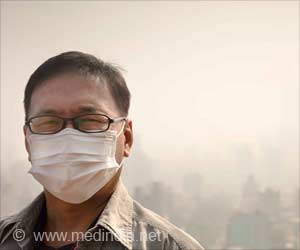TB in India apparently accounts for one-third of the global TB burden, with about 40 per cent of the country's population infected by the TB bacillus.
TB in India apparently accounts for one-third of the global TB burden, with about 40 per cent of the country's population infected by the TB bacillus.
Every year, two million people in India develop TB and 4,50,000 die from it, resulting in 1,000 deaths every day. TB kills more youth in India than other infectious diseases, it has been reported.At least six per cent of all TB cases occur in children under the age of 14 years. They are exposed to the disease primarily through contact with infectious adults and continue to be at risk till adults remain untreated.
If the principal provider is ill and cannot work; his children are at risk because of malnutrition which increases susceptibility to TB and brings other adverse effects on health as well as education. Children may be taken out of school or sent to work. More than three lakh children drop out of school that way.
Given such a grim scenario, the government has been announcing periodically some scheme or other to combat TB in children.
Now the government of India concedes that children even in such relatively progressive states like Tamil Nadu Maharastra are falling prey to this dreaded disease.
According to data available it is the children of these two states along with those of Uttar Pradesh and Delhi are increasingly becoming vulnerable.
Advertisement
In Maharashtra, 6,825 such cases were detected while in Delhi 5,223 cases were reported.
Advertisement
The four states are followed by West Bengal (4,910), Rajasthan (4,142), Karnataka (3,078), Gujarat (2,690), Andhra Pradesh (2,539) Madhya Pradesh (2,298)and Bihar (2,174).
The other states where TB is increasingly affecting children are Kerala (1,930), Punjab (1,680), Orissa (1,486), Haryana (1,395), Chhatisgarh (1,309) and Jharkhand (1,175).
A senior official of the Union Health Ministry has noted that the government is taking various preventive steps.
Revised National TB Control Programme (RNTCP) widely known as DOTS (Directly Observed Treatment Short Course), a WHO recommended strategy, is being implemented from 1997 in the country in a phased manner.
'Our objective is to achieve a cure rate of 85 per cent of new sputum positive cases and to detect at least 70 per cent of such cases,' the official said.
All children below six years of age who are household contacts of smear positive TB cases are screened for TB and after excluding active tuberculosis are offered chemoprophylaxis using Isoniazid, he added.
Source-Medindia
SRM









